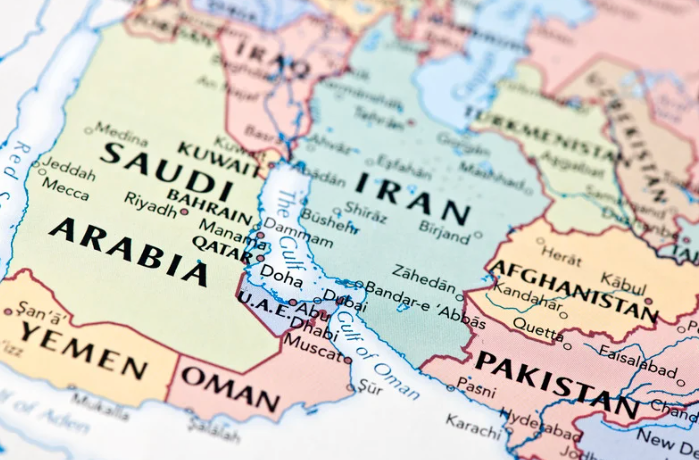UN Security Council Convenes Emergency Session Amid Escalating Israel-Hezbollah Conflict
The United Nations Security Council convened an emergency session on Friday in response to the escalating violence in the Middle East, primarily spurred by recent clashes between Israel and Hezbollah militants situated in Lebanon. These hostilities represent the most severe outbreak of violence observed in over a decade, thus raising considerable concerns about a potential broader regional conflagration encompassing various other stakeholders.
UN Secretary-General’s Plea for De-escalation
In his opening remarks, UN Secretary-General António Guterres emphasized the pressing need for both parties to immediately de-escalate the conflict. He stated, “The risk of wider conflict is real and must be avoided at all costs.” His condemnation of the ongoing violence underscored the serious implications it poses not just for the immediate area, but for regional stability at large. Guterres’ emphasis on restraint reflects a consensus view within the international community that further escalation could lead to dire consequences.
Background to the Violence
The renewed crisis was triggered by a suspected Hezbollah rocket strike targeting northern Israel, which resulted in the deaths of three Israeli civilians. In retaliation, Israel conducted airstrikes on militant sites across southern Lebanon. Reports have indicated a concerning toll on both sides, with at least 15 deaths confirmed on the Lebanese side, including five civilians. Such incidents have set off a chain reaction of hostilities that could have long-lasting repercussions in the region.
Statements from Leaders
In the midst of these escalations, Israel’s Prime Minister Benjamin Netanyahu has promised a robust response, asserting, “Israel will not tolerate threats to its citizens or sovereignty. Those who attack us will pay a heavy price.” In contrast, Hezbollah has characterized Israel’s actions as aggressive and has committed to defending Lebanese territory. This exchange of harsh rhetoric highlights the difficulties in reconciling the deeply entrenched narratives and hostilities characteristic of the Israel-Hezbollah relationship.
Geopolitical Ramifications of the Violence
The ongoing violence raises concerns about wider geopolitical implications that could invoke responses from various regional actors. Iran, a significant backer of Hezbollah, has warned that continued Israeli military actions could incite a “regional response.” Additionally, the instability pervasive in Syria and ongoing tensions with Palestinian factions in Gaza compound fears of a multi-front war potentially erupting in the near future. Middle East analyst Dr. Sarah Mahmoud cautioned that ongoing clashes could lead to a “multi-front war involving Israel, Hezbollah, and potentially Iran,” underlining the fragile balance that defines regional dynamics.
International Reactions and Humanitarian Concerns
The international community has responded with a range of reactions. The United States condemned Hezbollah’s actions and reiterated support for Israel, with Secretary of State Antony Blinken pointing out that, “We stand with our ally, Israel, against these unprovoked acts of terror.” Conversely, Russia has called for restraint, denouncing Israeli airstrikes as “disproportionate.” The European Union has appealed for all parties to prioritize diplomatic efforts to minimize civilian casualties. The ongoing conflict has also exacerbated the humanitarian crisis, displacing hundreds of families and overwhelming regional hospitals with casualties.
Prospects for Diplomacy
Although the emergency session of the Security Council concluded without a definitive resolution, diplomatic negotiations continue behind the scenes. France and Qatar are reportedly taking the lead to facilitate a ceasefire, while Egypt has offered to mediate the conflict. French Ambassador Nicolas de Rivière remarked, “Diplomacy is the only path to avoid a catastrophe.” The need for effective mediation has never been more urgent, as humanitarian conditions rapidly deteriorate.
Looking Ahead: The Situation Remains Critical
The situation in the Middle East stands on a precarious precipice, with the next 48 hours likely proving crucial for both Israel and Hezbollah. Israel has mobilized additional troops along its northern border, while Hezbollah has reportedly placed its fighters on high alert. Should hostilities continue along the current trajectory, the geopolitical fallout could further destabilize the region, disrupt global energy markets, and risk drawing other countries into conflict.
Conclusion
The emergency session of the UN Security Council reflects the gravity of the situation amidst escalating hostilities between Israel and Hezbollah. The international community watches closely, hoping to avert potential disasters that could ensue from a full-scale outbreak of violence. Continued diplomatic efforts and meaningful engagement are crucial in mitigating tensions, ensuring humanitarian aid reaches those affected, and ultimately seeking a path to lasting peace in the region. As the situation evolves, the response from key global players will be of paramount importance in shaping the trajectory of the conflict.
FAQs
What sparked the recent conflict between Israel and Hezbollah?
The conflict intensified following a suspected Hezbollah rocket strike that resulted in the deaths of three Israeli civilians, leading to retaliatory airstrikes by Israel on militant targets in southern Lebanon.
What are the potential regional implications of the escalation?
The ongoing violence could provoke further involvement from regional actors, particularly Iran, and may ignite broader tensions involving Palestinian factions and instability in neighboring Syria.
What has the international community’s response been to the conflict?
The international community has offered varied responses; the United States has condemned Hezbollah’s actions while Russia has criticized Israel’s military response as disproportionate. Both sides have called for de-escalation and a focus on diplomatic solutions.
What is the current humanitarian situation in Lebanon?
The conflict has resulted in hundreds of families being displaced, with hospitals overwhelmed and humanitarian aid access limited in the affected regions of southern Lebanon.
Are there ongoing diplomatic efforts to resolve the situation?
Yes, despite no resolution from the recent UN Security Council session, behind-the-scenes negotiations led by France, Qatar, and Egypt continue in hopes of facilitating a ceasefire and restoring stability to the region.

